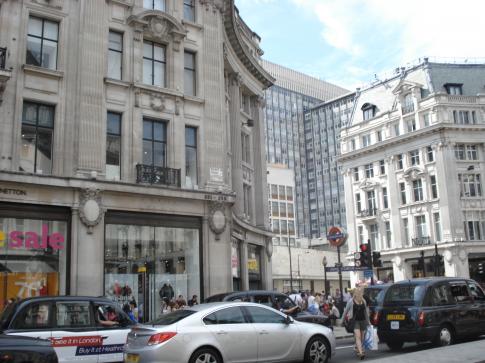Home ownership falls to lowest level since 1987

Official figures reflect a large increase in renting has Britons locked out of home ownership amid the tough economy.
By Andrew Oxlade and PA newswire
The level of homeownership has fallen to its lowest level since 1987, government figures showed today.
The vast majority of households are home owners, making up 14.39 million, but at 65.3 per cent of households this is the lowest proportion recorded since the height of the popularity of Margaret Thatcher's "right to buy policy", when council tenants were encouraged to buy their homes at a discount.
During the 1980s, the level of home ownership rose from 56.6 per cent to 67 per cent but it went on to peak at 70.9 per cent in 2003.
But the rapid increase in the cost of property in the run-up to 2007, coupled with a subsequent reduction in the availability of credit, has priced millions of would-be buyers out of the market.
The English Housing Survey 2011 to 2012, published today by the Department for Communities and Local Government, also showed that more households are renting their homes privately in England than living in social housing for the first time since the 1960s.
The figures also reflected the strong levels of demand for renting. Some 17.4 per cent or 3.84 million households were living in the private rental sector last year, compared with 17.3 per cent or 3.80 million renting from councils or housing associations. Recent research from property search website Rightmove suggested that around three-fifths of private renters are trapped because they cannot make the jump on to the property ladder.
There have been some recent signs of improvement to the mortgage market following the introduction of the Government's Funding for Lending scheme last August, which has given lenders access to cheap finance to help borrowers.
A string of lenders have slashed their rates and the number of mortgages on the market has increased since the scheme was introduced.
The Bank of England has reported uplifts in mortgage approvals to home buyers in recent months, although analysts have pointed out that the figures are still low compared with longer-term norms.
First-time buyers also still need to find a deposit of around 20%, compared with the mid-2000s when a 10 per cent deposit was typically put down.
Simon Rubinsohn, chief economist at the Royal Institution of Chartered Surveyors (RICS), said: "The figures provide further evidence of the shift away from owner-occupation in favour of the rental sector...
"RICS believes these broad trends are set to persist. Although the Funding for Lending Scheme has raised the availability of finance for first-time buyers, required deposits are still historically high, limiting accessibility for many."
The survey also found an increase in the proportion of households within the private rental sector which are classed as overcrowded, meaning that the number of bedrooms is not enough to avoid some "undesirable sharing".
The proportion of overcrowded households in the private rental sector has doubled from 3 per cent in the mid-1990s to 6% in 2011-12.
Around three-fifths of private renters, equating to 2.2 million households, said that they expected to buy a property at some point in the future - but 45% thought it would be five years or more before they did so.
Campbell Robb, chief executive of charity Shelter, said the figures are "bad news for anyone struggling to find a decent and affordable home".
He said: "As saving for a home of their own becomes increasingly out of reach, many have no choice but to live in rented homes for years on end.
"Today's figures take the growth of 'generation rent' to a whole new level.
"This should be the wake-up call that the Government needs to make renting fit for purpose."
In 1961, there were 3.2 million households living in social housing, while 4.7 million lived in the private rental sector.
But a decade later this had been reversed and by 1971 there were 4.6 million families living in social housing compared with 3.2 million who were privately renting.
Shelter recently produced a report which argued that the private rental sector has outgrown its role in primarily providing accommodation for students and young professionals.
The charity said that families have become stuck in the "rent trap" as rents have soared due to strong demand, which has left tenants with little cash to be able to save for a mortgage deposit. /Telegraph




 del.icio.us
del.icio.us Digg
Digg

Post your comment